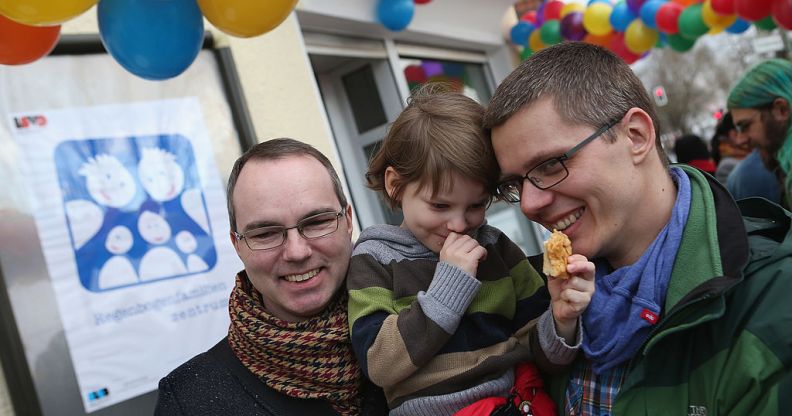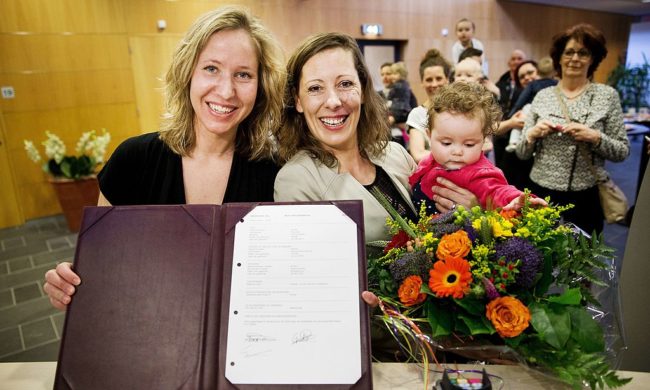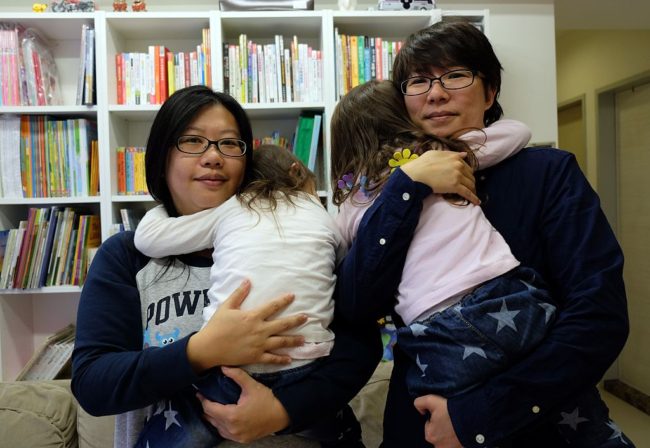Can same-sex parents both be biological parents of their child?

Children raised by same-sex couples perform better at school, according to a new study. (Sean Gallup/Getty Images)
In short: not yet. But all the signs point to it being possible in the not-too-distant future.
For countless same-sex couples, it has long been a distant dream to be able to be fathers and mothers to their children in the same way opposite-sex parents have always been.
But over the past two years, the science behind a child being the biological progeny of two fathers or mothers has come on leaps and bounds.

In 2015, the UK became the first country to approve a law to allow babies to be created from the DNA of three people – including two mothers.
Since then, IVF clinics have been able to replace an egg’s defective mitochondrial DNA with healthy DNA from a female donor’s egg.
Parliament’s decision followed news that researchers at Cambridge University had discovered it was possible to make egg and sperm cells using skin cells of two same-sex parents.
In the time since, we have witnessed the first baby being born with three biological parents and a set of triplets who were born to two fathers.
Last year in South Africa, two men – Theo and Christo Menelaou – became biological parents to their three children, having fathered one egg each.
After being fertilised, one of the eggs split into identical twins.

LILLIAN SUWANRUMPHA/AFP/Getty Images
And also in 2016, the New Scientist broke the news that a five-month-old boy was born “using a new technique that incorporates DNA from three parents”.
The boy was born to Jordanian parents, thanks to pioneering work from John Zhang and his team at New Hope Fertility Center, New York City.
They used the same procedure which was passed into law by the British parliament the year previous.
Dr Guy Ringler, a Californian fertility expert, admitted to Time Magazine that there were “various scientific obstacles” blocking the path, but said he remained positive about reaching the goal.
“There likely will be a time when reproductive science could create an embryo from the cells of two men or two women,” he proclaimed.
Other studies attempting to make sperm from bone marrow have proven promising.

SAM YEH/AFP/Getty Images
Several news publications have lost their collective minds over the years at the idea that men could be made ‘obsolete’ in the reproductive process by this possibility.
Despite their overblown fears – and unfortunately, considering the fantastic potential for this to make biological babies of lesbian couples a reality – experiments are still ongoing.
But either way, whether it’s via bone marrow, stem cells or otherwise, the consensus is coalescing around the acceptance that same-sex biological parents will soon be a feature of everyday life.

